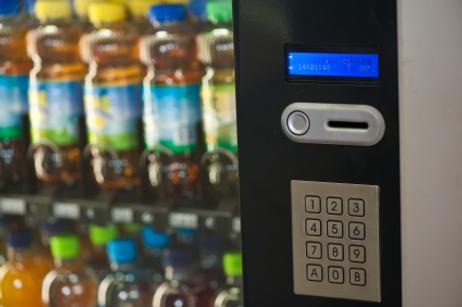Vending machines have become a mainstay in many public schools today, but nutrition experts fear that the calorie-laden treats lurking inside could be contributing to our nation's obesity epidemic. Some schools have taken action against such temptations by eliminating vending machines, while others are replacing the fare with nutritional options that boast less fat and fewer calories.
Are vending machines in schools a pleasant convenience or a nutritional threat? We will explore this issue to discover the full impact they have on the overall health of our children.
Junk Food Studies
A recent study in the Los Angeles Times showed that school vending machine purchases added about 253 calories to the diets of the 22% of students who ate them daily. Researchers from the University of Michigan, Michigan State University, and Food & Nutrition Database Research Inc. of Okemos, Michigan, conducted the study. The data was collected from 2,309 students nationwide in grades 1-12, and the findings were published in the September issue of the Journal of School Health.
The study also found that the most popular vending machine selections included soda pop, candy, chips, crackers, cookies, cakes, and ice cream. Healthier selections, including low-fat milk, fruit juice, and fruit, were also purchased.
In addition to the added calories, children who regularly snacked from vending machines added ten more grams of sugar to their diet daily. The same kids consumed less fiber, iron, and B vitamins overall.
The Problem with Obesity
It is a fact that more and more children in this country are becoming obese. According to a report in Minnesota Medicine, one-third of children and adolescents in this country are now considered overweight or obese. Many health risks increase when kids start packing on pounds, including higher incidences of Type 2 diabetes and coronary artery disease.
Questions? Contact us on Facebook. @publicschoolreview
As an obese child reaches adulthood, the individual may experience a decreased quality of life, a higher incidence of illness that could contribute to reduced work productivity, and a shortened life expectancy.
While the reasons for the increase in obesity rates are numerous and diverse, addressing these concerns at various levels is the best way to reverse the numbers. Changing the selection of school vending machines is just one piece of the puzzle, but many schools hope to inspire kids to adopt healthier habits that will serve them well into adulthood.
Carrots in Ohio
Mason High School in the Edgewood City Schools district is experimenting with a new vending machine that only dispenses bags of baby carrots for snacking. This carrot machine is part of a national marketing campaign for baby carrots, encouraging consumers to "eat 'em like junk food," according to a report in the Middletown Journal. The vending machines can hold up to 300 bags of carrots at once; each bag sells for 50 cents.
The machine will remain in the school for two months, and then the idea's popularity will be assessed. David Jewell, Edgewood's food service director, told the Middletown Journal, "I'm going to be seeing and meeting with the food services director at Mason this Friday. I'll ask about pluses and minuses and what they've experienced with it so far."
Healthier Machines in Cincinnati
Another Ohio school district is hopping onboard the healthy vending machine bandwagon, although the selections in the Hamilton County machines will be a bit more diverse. According to a report at Cincinnati.com, this school district has revamped guidelines for what can go into vending machines in schools, limiting calories, fat, sugar, sodium, and portion sizes.
Stacy Wegley, Hamilton County Public Health's director of health promotion and education, told Cincinnati.com that new standards will make it easier for students to make healthier diet choices throughout the day. Wegley said, "We can't offer students cheese fries and broccoli and expect them to pick broccoli. It's simply not going to happen."
NYC Schools Say Goodbye to Snapple
When their five-year contract with Snapple Beverage Group expired this year, New York City public schools seized the opportunity to change their vending machine selections. Now, vending machines are stocked with flavored water and snacks that contain less than 200 calories, according to a report in The Spectator. The new machines are thus far receiving mixed reviews from students, but many appear to prefer the healthier selections.
Healthier vending machines may be a single step on the road to better health, but they are a step forward nonetheless. If children begin making healthier snacking a habit, perhaps this country will see a reverse in the growing obesity rate.
Questions? Contact us on Facebook @publicschoolreview.












